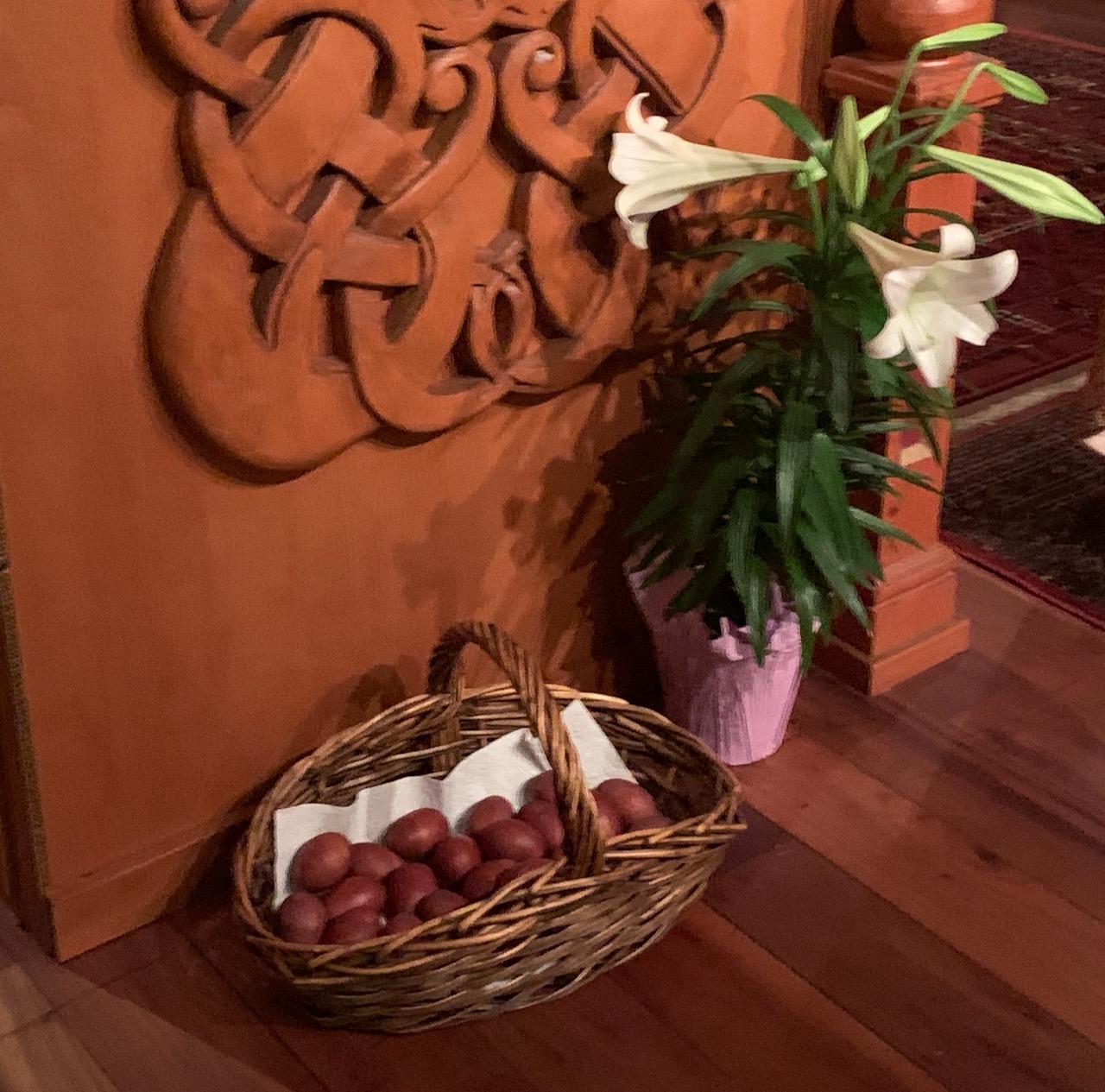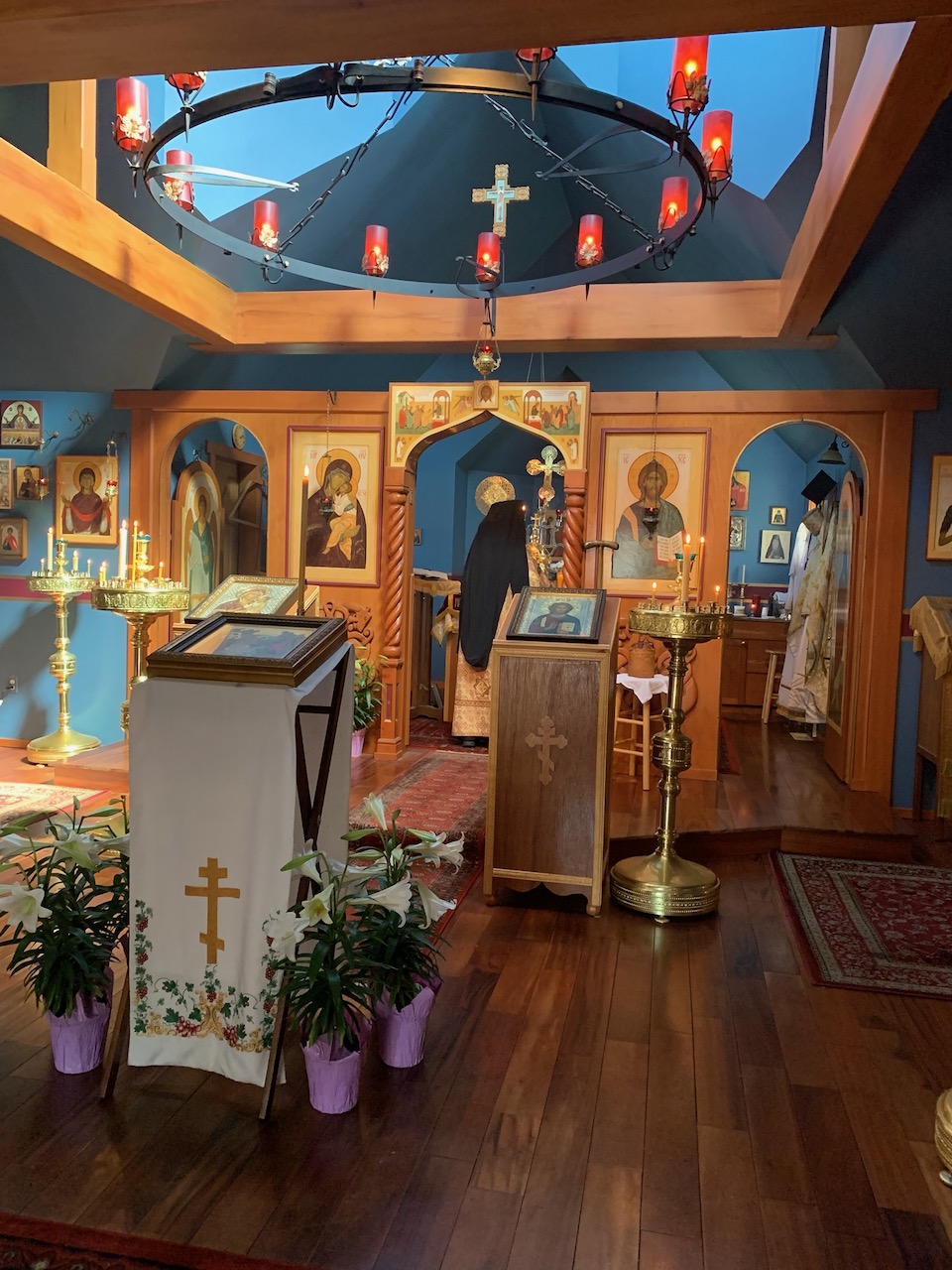In the half-century after the First Ecumenical Council held in Nicaea in 325, if there was one man whom the Arians feared and hated more intensely than any other, as being able to lay bare the whole error of their teaching, and to marshal, even from exile or hiding, the beleaguered forces of the Orthodox, it was Saint Athanasius the Great. This blazing lamp of Orthodoxy, which imperial power and heretics' plots could not quench when he shone upon the lampstand, nor find when he was hid by the people and monks of Egypt, was born in Alexandria about the year 296. He received an excellent training in Greek letters and especially in the sacred Scriptures, of which he shows an exceptional knowledge in his writings. Even as a young man he had a remarkable depth of theological understanding; he was only about twenty years old when he wrote his treatise On the Incarnation. Saint Alexander, the Archbishop of Alexandria, brought him up in piety, ordained him his deacon, and, after deposing Arius for his blasphemy against the Divinity of the Son of God, took Athanasius to the First Council in Nicaea in 325; Saint Athanasius was to spend the remainder of his life labouring in defence of this holy Council. In 326, before his death, Alexander appointed Athanasius his successor.
In 325, Arius had been condemned by the Council of Nicaea; yet through Arius' hypocritical confession of Orthodox belief, Saint Constantine the Great was persuaded by Arius' supporters that he should be received back into the communion of the Church. But Athanasius, knowing well the perverseness of his mind, and the disease of heresy lurking in his heart, refused communion with Arius. The heresiarch's followers then began framing false charges against Athanasius; finally Saint Constantine the Great, misled by grave charges of the Saint's misconduct-which were completely false-had him exiled to Tiberius (Treves) in Gaul in 336. When Saint Constantine was succeeded by his three sons Constantine II, Constans, and Constantius, in 337, Saint Athanasius returned to Alexandria in triumph. But his enemies found an ally in Constantius, Emperor of the East; Saint Athanasius' second exile was spent in Rome. It was ended when Constans prevailed with threats upon his brother Constantius to restore Athanasius (see also Nov. 6). For ten years Saint Athanasius strengthened Orthodoxy throughout Egypt, visiting the whole country and encouraging all, clergy, monastics, and layfolk, being loved by all as a father. But after Constans' death in 350, Constantius became sole Emperor,and Athanasius was again in danger. In the evening of February 8, 356, General Syrianus with more than five thousand soldiers surrounded the church in which Athanasius was serving, and broke open the doors. Athanasius' clergy begged him to leave, but the good shepherd commanded that all the flock should withdraw first; and only when he was assured of their safety, he also, protected by divine grace, passed through the midst of the soldiers and disappeared into the deserts of Egypt, where for some six years he eluded the soldiers and spies sent after him.
When Julian the Apostate succeeded Constantius in 361, Athanasius returned again, but only for a few months. Because Athanasius had converted many pagans, and the priests of the idols in Egypt wrote to Julian that if Athanasius remained, idolatry would perish in Egypt, the heathen Emperor ordered not Athanasius' exile, but his death. Athanasius took ship up the Nile. When he learned that his imperial pursuers were following him, he had his men turn back, and as his boat passed that of his pursuers, they asked him if he had seen Athanasius. "He is not far," he answered. After returning to Alexandria for a while, he fled again to the Thebaid until Julian's death in 363. Saint Athanasius suffered his fifth and last exile under Valens in 365, which only lasted four months because Valens, fearing a sedition among the Egyptians for their beloved Archbishop, revoked his edict in February, 366.
The great Athanasius passed the remaining seven years of his life in peace. Of his fifty-seven years as Patriarch, he had spent some seventeen in exiles. Shining from the height of his throne like a radiant evening star, and enlightening the Orthodox with the brilliance of his words for yet a little while, this much-suffering champion inclined toward the sunset of his life, and, in the year 373, took his rest from his lengthy sufferings, but not before another luminary of the truth, Basil the Great, had risen in the East, being consecrated Archbishop of Caesarea in 370. Besides all his other achievements, Saint Athanasius wrote the life of Saint Anthony the Great, with whom he spent time in his youth; ordained Saint Frumentius first Bishop of Ethiopia; and in his Paschal Encyclical for the year 367 set forth the books of the Old and New Testaments accepted by the Church as canonical. Saint Gregory the Theologian, in his Oration On the Great Athanasius, said he was "Angelic in appearance, more angelic in mind; ... rebuking with the tenderness; of a father, praising with the dignity of a ruler ... Everything was harmonious, as an air upon a single lyre, and in the same key; his life, his teaching, his struggles, his dangers, his return, and his conduct after his return ... be treated so mildly and gently those who had injured him, that even they themselves, if I may say so, did not find his restoration distasteful."



